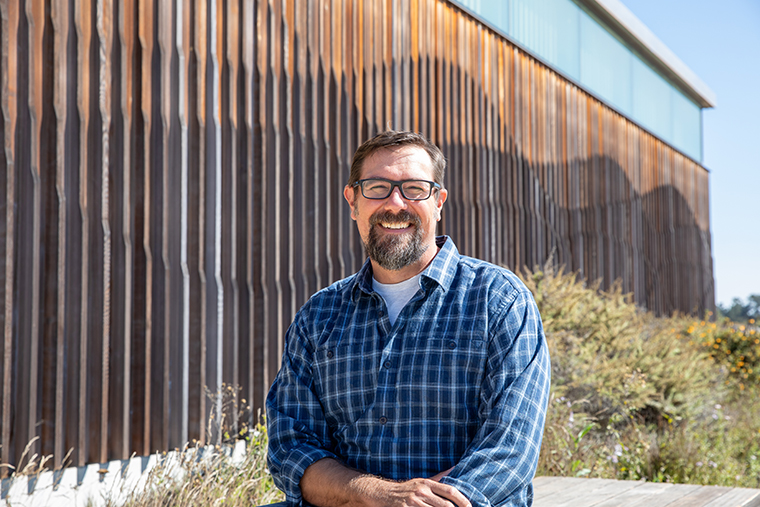Campus News
Eric Palkovacs is awarded the 2023 Excellence in Fisheries Education Award
Eric Palkovacs has been awarded the 2023 Excellence in Fisheries Education Award by the American Fisheries Society, the organization announced. This award is presented to an individual to recognize excellence in organized teaching and advising in some aspect of fisheries education.

UC Santa Cruz’s Eric Palkovacs has been awarded the 2023 Excellence in Fisheries Education Award by the American Fisheries Society (AFS), the organization announced. This award is presented to an individual to recognize excellence in organized teaching and advising in some aspect of fisheries education.
Palkovacs is the Director of the UC Santa Cruz Fisheries Collaborative Program, which supports collaborative projects between UC Santa Cruz and the National Oceanic and Atmospheric Administration’s (NOAA) Southwest Fisheries Science Center. He is also a professor of Ecology & Evolutionary Biology, where he teaches undergraduate and graduate courses in freshwater ecology and fisheries ecology, and has been the faculty mentor for the Santa Cruz-Monterey Bay Area Student Subunit since its founding in 2015.
The Excellence in Fisheries Education Award recognizes Palkovacs’s key contributions to fisheries education through teaching, mentoring, and DEI efforts.
Palkovacs engages students who take his courses in active learning and connects theory with practical applications. He is an engaged mentor and adviser for undergraduate students, graduate students, and postdoctoral researchers alike. He has advised 11 Ph.D. students, five master’s students, 10 postdoctoral researchers, and many undergraduate thesis projects, and has served on numerous graduate advisory committees. The students and researchers he has mentored have gone on to secure esteemed positions in the realm of academia, state and federal agencies, and prestigious non-governmental organizations.
Additionally, Palkovacs is active in creating an inclusive culture by launching programs such as the Diverse Voices in Fisheries Science seminar series, which takes place annually at UC Santa Cruz. The Diverse Voices in Fisheries Science events offer a platform for diverse speakers to share their research and create space for early career scientists to network with professionals in the industry.
Palkovacs’s research interests include freshwater ecology, eco-evolutionary dynamics, fish ecology, fisheries management, and conservation. He is particularly interested in the ecological consequences of intraspecific genetic and phenotypic variation and applications of eco-evolutionary dynamics for fisheries management. He is also actively engaged in conservation and management of U.S. Pacific coast anadromous fishes – fish that migrate to spawn –and river herring of the U.S. Atlantic coast.
“For those who know my work, you might know that I am interested in ‘extended phenotypes’ – the traits of organisms that go on to shape their environments,” Palkovacs said. “To me, teaching and mentoring are our most powerful ‘extended phenotypes.’ Through these, we can share knowledge and experience, inspire new ways of thinking and acting, and build community and broaden diversity. We are all both mentors and mentees. I encourage everybody to exercise your own ‘extended phenotype’ for the betterment of our field, our fisheries, and our world.”
# # #
Founded in 1870, the American Fisheries Society (AFS) is the world’s oldest and largest fisheries science society. The mission of AFS is to improve the conservation and sustainability of fishery resources and aquatic ecosystems by advancing fisheries and aquatic science and promoting the development of fisheries professionals. With five journals and numerous books and conferences, AFS is the leading source of fisheries science and management information in North America and around the world.